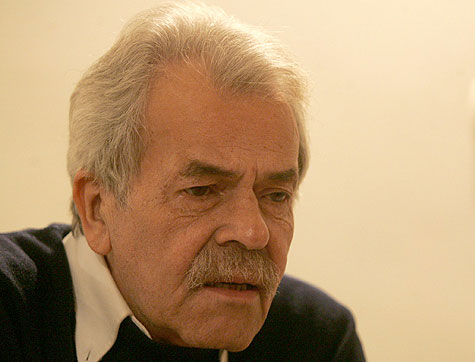Another novel by Brazilian author Machado de Assis, ‘Quincas Borba’ (known in English as Philosopher), is to be soon published, announced Abdollah Kowsari, translator of the book.
Kowsari who has already translated and published two of the trilogy by Machado de Assis said publishing ‘Quincas Borba’ the trilogy of ‘The Posthumous Memoirs of Bras Cubas’ and ‘Dom Casmurro’ is complete, honaronline reported.
The novel is expected to be published this month.
The most prominent works of the Brazilian author have been translated to Persian, although he has over 200 short stories yet to be translated, Kowsari added.
‘Ney’ is the publisher of Quincas Borba. The publication company said the book is a social, political, and philosophical blend. It is an allegory of precipitous artificial modernization of Brazil in the late 19th century which exemplifies the novels of the time presenting themes such as love, family, betrayal, social relationships, and politics. However at the same time it criticizes the novel writing tradition of its time. It is a critique of imitating naturalism and sentimental romanticism pervasive of the era.
Greatest Writer
Joaquim Maria Machado de Assis (1839–1908), was a novelist, poet, playwright, and short story writer. Widely regarded as the greatest writer of Brazilian literature, he nevertheless, did not gain widespread popularity outside Brazil in his own lifetime. He was multilingual, having taught himself French, English, German and Greek in later life. In 1941, the Brazilian Academy of Letters founded in his honor the Prêmio Machado de Assis (Machado de Assis Prize), the most prestigious literary award in Brazil.
In the preface of Dom Casmurro, Kowsari writes: “The world of Machado is filled with ambiguity and uncertainty. In his three novels the reader faces an unreliable narrator. In the memoirs of Bras Cubas the narrator is dead and recounts the story of his life regardless of the judgment of the living and from beyond. In Dom Casmurro he confesses that his memory is poor and in Quincas Borba he is struggling with insanity. Thus Machado effaces any certainty from his realism.”


